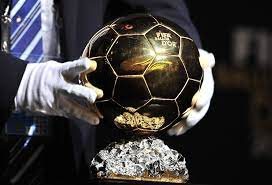Ballon d'Or
The Ballon d'Or: Celebrating the Best in Football
The Ballon d'Or, often hailed as one of football's most prestigious individual awards, has consistently symbolized excellence and acknowledgment of the sport's top talents. Since its establishment in 1956, this accolade has captured the imagination of football enthusiasts worldwide, becoming an annual tribute to the greatest talents on the planet. In this article, we delve into the historical significance, current relevance, and influence of the Ballon d'Or.
Origins of the Ballon d'Or
The Ballon d'Or, which translates to "Golden Ball" in French, was instituted by the French football magazine "France Football." Its original purpose was to recognize the best European player of the year. However, during its early years, the award was limited to European players competing within Europe, excluding non-European talents and players participating outside the European leagues.
The first-ever recipient of the Ballon d'Or was Sir Stanley Matthews, a legendary English footballer who graced the sport with his extraordinary skills and enduring career. Since then, a distinguished roster of football legends has received this highly coveted honor.
Evolution and Expansion
Over time, the Ballon d'Or evolved to incorporate a wider range of eligible players. In 1995, non-European players active in European leagues became eligible for the award, and further expansion occurred in 1995, opening the door for all footballers, irrespective of their club or country.
This expansion resulted in a more inclusive recognition of football talent from around the globe. As a result, it acknowledged and celebrated the accomplishments of players from diverse backgrounds and various footballing cultures.
Significance of the Award
The Ballon d'Or signifies more than just individual brilliance; it mirrors the state of the game and the collective joy it brings to millions of fans. It represents football's diverse and universal nature, revealing how talent transcends borders and nationalities.
For footballers, winning the Ballon d'Or is a testament to their unwavering commitment, dedication, and remarkable skills. It secures their place in history alongside football's all-time greats. Players such as Pelé, Diego Maradona, Johan Cruyff, and Michel Platini have left an indelible mark in football history as Ballon d'Or laureates.
Cristiano Ronaldo and Lionel Messi: A Legendary Rivalry
The Ballon d'Or has borne witness to one of the most iconic rivalries in the annals of football – the relentless pursuit of excellence by Cristiano Ronaldo and Lionel Messi. These two superstars have consistently dominated the award, setting new records and pushing the boundaries of individual success.
Between 2008 and 2019, either Cristiano Ronaldo or Lionel Messi clinched the Ballon d'Or each year. Their rivalry ignited countless debates among fans, with fervent supporters championing their personal favorites. Their consistent triumphs elevated the award to new heights, and their competition became an integral part of its storied history.
The Impact of the Ballon d'Or
The Ballon d'Or doesn't merely celebrate individual brilliance; it serves as a wellspring of inspiration for future generations. Aspiring young footballers look up to the laureates, harboring dreams of reaching similar heights on the pitch. This accolade acknowledges the toil, discipline, and innate talent that culminate in the making of a world-class footballer.
Furthermore, the Ballon d'Or exerts a profound influence on a player's market value and personal brand. Winning the award often leads to lucrative sponsorship agreements and endorsements, elevating a player's status both on and off the field. It is a testament to a player's marketability and enduring popularity.
Challenges and Controversies
While the Ballon d'Or is a venerable institution, it has not remained untouched by controversy. The voting procedure, the subjective nature of evaluation, and accusations of partiality have sparked spirited discussions in the world of football. Critics argue that, at times, it appears to prioritize reputation over actual performance, occasionally yielding unexpected outcomes.
In recent years, the Ballon d'Or faced challenges due to the COVID-19 pandemic, which disrupted the football calendar. The 2020 edition was canceled, marking the first time in its history that the award was not bestowed. Nonetheless, the organizers have pledged to return with renewed enthusiasm and a commitment to preserving the award's integrity.
Conclusion
The Ballon d'Or represents more than an individual honor; it is a celebration of the beautiful game. It acknowledges the dedication, talent, and hard work of football's finest players, reflecting the global reach of the sport. While debates and disputes encircle the award, it remains a vital part of football's narrative, a wellspring of motivation for future generations, and a symbol of the enduring enchantment of the world's most beloved sport.

Comments
Post a Comment